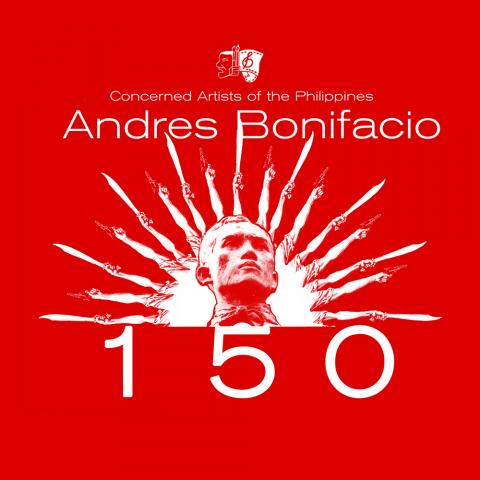By CenPEG
MANILA — Unbeknownst to the country’s historical associations but reported just the same by the Philippine press last week was the celebration of “the 100 years of Philippine Legislature” on June 7. Spearheading the centennial celebration was Rep. Jose de Venecia, outgoing Speaker of the 13th Congress, with President Gloria M. Arroyo addressing the special plenary session of the House of Representatives that lacked the procedural quorum. Mrs. Arroyo used the occasion to call for “national reconciliation” with the political opposition to allow the nation, so she hoped, “to move forward.”
Both the centennial celebration and the President’s call happened at the wrong time and for the wrong reasons. There was no historical basis for the centennial much less any reason to celebrate it with approbation. Mrs. Arroyo, on the other hand, has been the most divisive element in the country’s politics and for her to make the call in the same occasion was way off the mark.
Opposing the centennial extravaganza, reelected Rep. Roilo Golez called it a “distortion of history,” citing documents from the National Historical Institute (NHI). Indeed, the first Philippine legislature was the Malolos Congress which was convened by 50 delegates in September 1898 when Spain was already defeated by the Philippine revolution after over three centuries of colonial rule. The Malolos Congress lasted for only a year as the Americans began to wage a treacherous colonialist war against the Filipino people in what could qualify as one of the bloodiest colonial conquests by a foreign imperialist power � close to one million Filipinos died.
De Venecia’s centennial is based on the first Philippine Assembly which was convened by the U.S. in 1907 as the lower house, with the colonial Philippine Commission as the upper house.
Wrong on two counts
The commemoration of the 100 years of the Philippine Legislature is wrong on two counts: The inaugural session of the first Philippine Assembly was held on Oct. 16, 1907, or almost two months after the election (July 30), raising the question why the centennial celebration was held on June 7. Secondly, unlike the Assembly which was sponsored by the U.S. colonial government it is the Malolos Congress that is considered by most Filipino historians as purely a Filipino legislature. Thus, the first centenary of the Philippine legislature should have been commemorated in September 1998 � the year the whole nation marked the 100 years of Philippine independence from Spanish colonial yoke.
Regardless of the historical reconstruction that needs to be done, the present Congress takes its lineage to the Philippine Assembly which was established by the American colonizers to co-opt members of the local elite as they went about tightening their colonial subjugation of the Filipinos. The elite composition of the Assembly at that time is replicated in the present Congress under the Fifth Republic where around 160 of its regular members originate from political clans. At least that is a historical truth that can easily merit a national consensus.
Last week’s centennial celebration fits into the elite-dominated Congress’ colonial mindset that has molded the institution for a century. Members of Congress, said Bayan Muna Rep. Teddy Casi�o, “should go on soul-searching and ask themselves why the people despise them so much. They should break free from their colonial and reactionary roots in order to truly serve the interest of the people.”
The fact that the whole nation was kept in the dark to what its organizers thought was a landmark celebration can only dramatize how ill-prepared and undeserved the attention was given to the centennial. Not even the NHI recognized the centenary of the legislature and merely considered it as a historical fact, according to Golez.
“First World in 20 years”
Mrs. Arroyo tried to embellish the centennial celebration with her own grandiloquent speech exhorting the U.S.-created Assembly as a step toward “freedom, liberty and equality” that, a century later, would see the nation racing “to a horizon full of promise� with the end goal of being First World in 20 years.”
She then offered the opposition her hand of “reconciliation” as a gesture toward removing the recent elections’ “contentious moments” and allowing the country to “move forward.”
“It’s time to be magnanimous, win or lose,” the President trumpeted in the language of Alexander Dumas. “The interest of the people dictates that we must close all chapters of strife and recrimination � and step up the contest of excellence in all fields, all for one and one for all.”
Of course, Mrs. Arroyo � whose presidency remains in question � was talking as a politician trying to project herself as a statesman who is above politics, above the fracas, fraud and intimidation that her own administration is accountable to for making the recent elections one of the most divisive and violent in years. The May 14 elections resulted in the lowest voters’ turnout in decades � 50 percent, says Namfrel. Blame that on state-instigated massive disenfranchisements. It may also go down in history with the electoral process drawing the lowest credibility rating and the Commission on Elections as one of the biggest hazards to what is otherwise billed as “fair and democratic” elections.
The presidential message was delivered at the wrong place, at the wrong time � and by the wrong source. The fraudulent elections entrenched the political dynasties’ domination of the House probably giving the President another chance at pre-empting a third impeachment. But it also further narrowed down the poor’s representation from 23 to 20 members, out of a constitutionally-projected total of 55 slots. Government’s crude and coercive electoral machinations, particularly against the progressive Party-list bloc, shut the doors to the marginal classes’ prospects, albeit guarded, for making their voice heard in the legislature.
Thus, the election results widened the political divide that animates the social inequities between the powers-that-be and the poor majority. Certainly a gesture of reconciliation offered by the most divisive element in the country today � the Arroyo presidency � sounds hypocritical if not downright brutal. Was it not in the same “august body” where Mrs. Arroyo last year also exhorted what human rights watchdogs called the “butcher” of activists � then Maj. Gen. Jovito Palparan � who was seated right inside the chamber among the dignitaries? Some foreign ambassadors nearly fell off their seats after hearing that while Arroyo’s political allies almost gave Palparan a standing ovation right there.
Both the President and the House which she addressed are symbols of divisive and dirt politics in the country. The first has no authority to talk about reconciliation; the second, with the exception of a few legislators, is the enclave of traditional politicians whose dynastic and narrow territorial concerns are far removed from the broad interests of the people. (CenPEG)
Analysis








